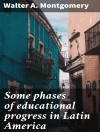In ‘Schools, School-Books and Schoolmasters, ‘ William Carew Hazlitt presents a critical examination of the educational system in 19th-century England. Through an analytical lens, Hazlitt delves into the evolution of schooling, the role of educators, and the often contentious relationship between the curriculum and societal values. The book employs a blend of personal anecdotes, historical context, and philosophical inquiry, demonstrating Hazlitt’s rich prose style and his ability to intertwine narrative with critique. This work reflects the broader literary movement of the time, engaging with the Romantic emphasis on individual experience and the importance of education in shaping character and society. William Carew Hazlitt was not only an astute literary critic but also a profound philosopher and social commentator, rooted in a familial legacy of intellectualism. Drawing from his father’s experiences in education and his own reflections on the shortcomings of the system, Hazlitt’s insights are informed by both personal and historical contexts. His background in law and literature allows him to present a nuanced perspective, blending advocacy for educational reform with a deep admiration for the power of knowledge and scholarship. For readers interested in the intersections of education, literature, and societal norms, Hazlitt’s work is a compelling and informative resource. It invites educators, parents, and policymakers to reflect on the purpose and quality of education, making it an essential read for anyone invested in the future of schooling and the development of young minds.
A propos de l’auteur
William Carew Hazlitt (1834-1913) was an eminent British bibliographer, editor, and writer, renowned for his contributions to the scholarship of English literature, particularly in the realms of bibliographical and antiquarian studies. Born into a literary family as the grandson of the esteemed essayist and critic William Hazlitt, he developed an early interest in books and education, which would manifest prominently in his literary career. Hazlitt’s work ‘Schools, School-Books and Schoolmasters’ is a notable example of his in-depth exploration of the history and development of education in English society. His scholarly style often combined meticulous historical research with a keen understanding of literary culture. Besides his investigations into educational history, Hazlitt produced several bibliographies, including compilations of English proverbs and folklore, as well as editions of Renaissance literature that have been highly regarded for their thoroughness and accuracy. Throughout his career, Hazlitt upheld the literary ethos of his grandfather, affirming the importance of literature in the shaping of cultural and intellectual history. His extensive contributions to the fields of bibliographical and educational studies remain valuable resources for researchers and scholars in English literature and history.












